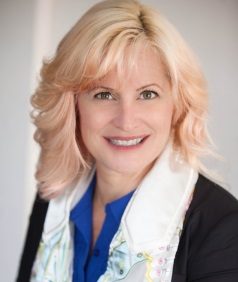What does Moses’ closing address to the Children of Israel have to do with gender?
It’s no secret that Torah is gender specific. The Hebrew language assumes a gender binary. Rabbinic Judaism accorded the greatest amount of esteem and religious status to those whom we often refer to today as cis-gendered men – individuals who were assigned male at birth and identify as male. Females were not obligated when it came to time-bound mitzvot. There have been many discussions about gender equality when it comes to the binary halakhic system of our faith. Often, in an attempt to get cis women more religious equality, those discussions take for granted the binary. But few have centered on the limited manner Torah seems to view gender in black and white terms. That’s where Moses comes in. It is Moses who leads the Jews out of Egypt, who carries the law down from Mount Sinai, who prepares the Jews for entry into the land of Israel. And it is Moses who demonstrates that gender is not relevant when it comes to being blessed by G-d.
In Ekev, Moses tells the Children of Israel that G-d will favor them, will bless them and will multiply them. He tells them that they will be blessed from “פְּרִי-בִטְנְךָ”, the “fruit of your womb” (Deut. 7:13). Surely Moses knew that wombs were part of the female anatomy, why then did he choose this word “בִטְנְךָ” which literally translated means “your womb?” Because Moses knew his audience. He wasn’t just speaking to the male Children of Israel; he was speaking to all the Children of Israel.
Further along in the parsha, Moses tells the people of Israel to “circumcise their hearts,” “וּמַלְתֶּם.” Here too, Moses is speaking to all the Children of Israel imploring them to metaphorically cut the foreskin from their hearts. If Moses’ intention was to be inclusive of all the Children of Israel when referring to the “fruit of your womb,” then here too, one could interpret that the choice of the heart for circumcision is deliberate. Everyone has a heart. That Moses intends to be inclusive of all the Children of Israel is evidenced in the fact that everyone needs to remove the emotional blocks that divert us from our path toward G-d.
Of parshat Ekev, Rashi explored the use of the word עָקֵב linking it to עָקֵב meaning “heel”. Rashi teaches us that if we heed even what are considered minor commandments, which might otherwise be easy to trample over with our heels, then G-d will keep the promise given to the Children of Israel. Like Moses who took off his shoes to experience the holiness coming forth from the earth, we should remove barriers which impede our connection with G-d. Therefore, by peeling back the calloused layers of the heart that Moses was speaking about when he told our ancestors to “circumcise (their) heart(s),” the heart within all the Children of Israel can be made more tender.
It is the uncircumcised heart that is a form of stubbornness and leads to callous and cruel treatment of others. Those with an “uncircumcised heart” can become closed minded, and insensitive to others. Rabbi Sheldon Blank explains that “biblical psychology localizes feelings and emotions in the body and looks to the heart as the organ of compassion – an uncircumcised heart is a ‘closed mind’.” It is closed mindedness that prevents many people from understanding that gender is not binary, and further, that people who are transgender are not to be feared or loathed or targeted.
One need only circumcise the heart; to peel away the tough layers of calloused skin revealing a tender open heart. Before planting crops, a farmer will till the land, clearing it of weeds. The soil is turned over to make room for delicate roots to grow into mighty crops. So too must the heart be cleared of the obstructions that prevent delicate tenderness from growing into mighty empathy. Moses spoke to the Children of Israel with an open heart, an “uncircumcised heart.” Moses spoke without the limit of gender; he spoke to ALL. In parshat Ekev, Moses provides us the opportunity to “circumcise” our hearts, to see past a binary system of gender classification. It is Moses who first demonstrates a sensitivity toward stereotypic gender-specific characterizations. Will we as a society be able to circumcise the callousness from our hearts so that we may demonstrate the same sensitivity regarding gender today?
Ali Sagadencky is a fifth year rabbinical student at the Academy for Jewish Religion, California. She is a social activist whose work has included LGBTQ rights in California, those affected by the devastation following Hurricane Katrina and working with incarcerated women in California Chino State prison in the area of self-esteem building.

